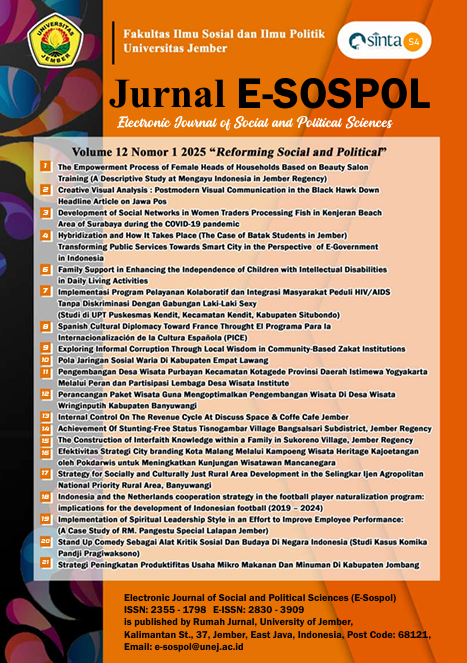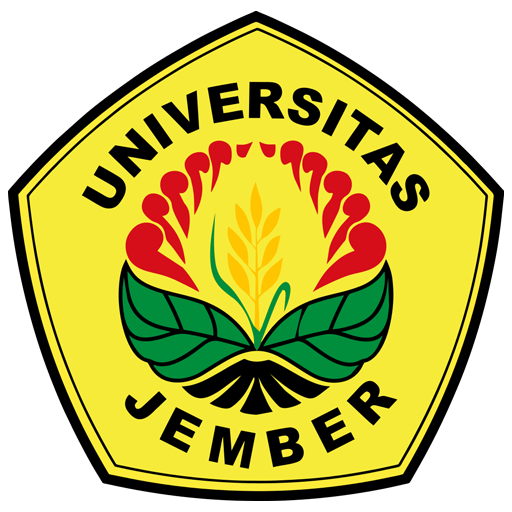Strategy for Socially and Culturally Just Rural Area Development in the Selingkar Ijen Agropolitan National Priority Rural Area, Banyuwangi
DOI:
https://doi.org/10.19184/e-sospol.v12i1.53705Abstract
The development of rural areas is an integrative effort between villages, carried out to accelerate and improve the quality of public services, development, and community empowerment through a participatory development approach. However, rural area development has not yet adequately addressed social justice in terms of development sustainability. This study aims to identify socially just development strategies for rural areas, particularly concerning the socio-cultural dimension. The research was conducted in the Agropolitan National Priority Rural Area (KPPN) of Selingkar Ijen, Banyuwangi, focusing on 7 out of the 14 villages within the area. This is a descriptive qualitative study using Soft System Methodology (SSM). Data collection was carried out through observation, secondary data gathering, focus group discussions, and in-depth interviews (mandala interviews), with data analysis conducted using the Planning Charrette method. The research findings indicate that the development of the Selingkar Ijen Agropolitan Area must consider the socio-cultural dimension, particularly the presence of Osing cultural traditions and the strengthening of Osing community institutions or customary councils. These represent a unified value system and collective cultural practices within an integrated rural area. The strategy includes the cultural transformation of Osing traditions among the younger generation for further development. It also involves recognizing Osing culture as a revitalized pillar of development and leveraging it as local wisdom within governance and development systems.
Downloads
Downloads
Published
Issue
Section
License
Penulis yang mengusulkan naskahnya untuk dapat diproses penerbitannya pada e-SOSPOL dianggap telah menyetujui beberapa hal sebagai berikut:
1. Penulis tidak dapat menarik naskah yang telah usulkan untuk diproses hingga mendapat jawaban dari Ketua Dewan Penyunting atas status naskah artikel ilmiahnya (diterima atau ditolak untuk diterbitkan).
2. Penerbit tidak bertanggung jawab terhadap kasus plagiasi atas artikel yang terbit pada e-SOSPOL
3. Penerbit tidak bertanggung jawab atas data dan isi dari artikel yang diterbitkan pada e-SOSPOL, dan sepenuhnya merupakan tanggung jawab penulis.







